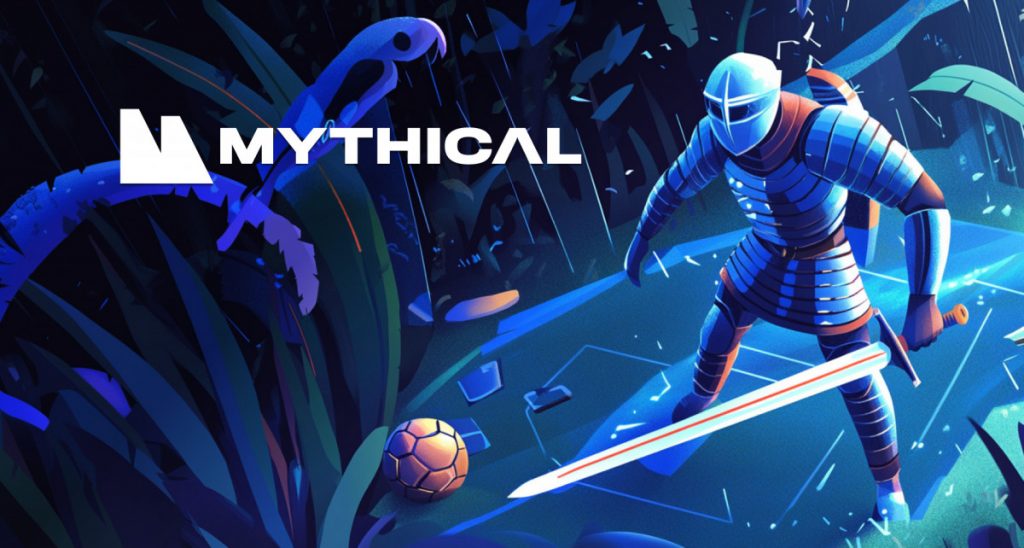Unlocking Web3’s Potential Through IP: Insights From Mythical Games And NFL Rivals


In Brief
Mythical Games illustrates how integrating licensed IP into Web3 gaming—through strategic partnerships, accessible design, and engaging gameplay—can bridge the gap between blockchain innovation and mainstream entertainment.

Game technology studio Mythical Games shared insights into its journey integrating licensed intellectual property (IP) into Web3 gaming, emphasizing how strategic collaborations with major brands—such as the NFL, and soon FIFA—can help Web3 titles reach a broader, more mainstream audience when combined with strong gameplay mechanics and a refined user experience
As Mythical Games explains, at first glance, the concepts of IP and Web3 might appear at odds. IP involves permissioned access—brands and likenesses must be formally licensed, whether it’s a sports team or a nostalgic video game. In contrast, Web3 champions a permissionless ethos, allowing developers and users to build and interact freely without gatekeeping.
However, in the context of Web3 gaming, Mythical Games argues that these two seemingly opposing forces can, in fact, complement each other. When executed well, permissionless technology and licensed IP can enhance one another, resulting in dynamic and engaging experiences. Their case studies show that when beloved characters and recognizable brands are thoughtfully adapted into blockchain-based environments, the outcome can be both entertaining and accessible. While not every integration hits the mark, successful examples demonstrate how IP, when aligned with solid design and a seamless experience, can elevate Web3 games beyond niche appeal.
When Intellectual Property Is Effectively Leveraged
Deciding whether to incorporate major IP into a Web3 game is a complex strategic consideration. On the positive side, recognizable IP can provide immediate visibility and fan engagement, helping a game distinguish itself in a saturated market. However, the process of licensing well-known IP is both costly and high-stakes, and securing the rights involves more than simply choosing a popular character or brand—the IP owner must also trust the proposed vision and how their brand will be represented.
When the partnership is well-matched, though, the outcome can be highly effective. Within the still relatively young Web3 gaming landscape, the collaboration between Mythical Games and the NFL stands out as a benchmark. The studio managed to secure the rights to one of the world’s most recognized sports leagues, including team and player branding—a feat previously only accomplished by a major player like EA Sports.
The result, NFL Rivals, has been widely recognized as a breakthrough success, credited with helping push Web3 gaming closer to mainstream awareness. It allows players to collect and trade non-fungible tokens (NFTs) representing real-life athletes, utilizing officially licensed assets from both the NFL and the NFL Players Association. With millions of downloads, the game is not just seen as a strong example of IP integration—it has become a standard against which other IP-based Web3 games are often measured.
Looking ahead, Mythical Games appears to have built on this momentum in securing IP rights from FIFA for its upcoming title, FIFA Rivals. Given the studio’s proven track record and FIFA’s prior exploration of Web3 technologies through NFT campaigns tied to major tournaments, this collaboration may have been more straightforward. Still, it reflects the growing confidence among global IP holders in the potential of blockchain-based gaming.
IP Should Enhance The Game—Not Define It
When handled with care and designed thoughtfully, incorporating recognizable intellectual property into a Web3 game can significantly enhance its appeal and potentially broaden its reach. However, consistent success in this area isn’t guaranteed, and statistically, not every release will be a major hit.
A common issue with many early Web3 games—particularly those built around the short-lived “Play-to-Earn” model—was that their main draw was the underlying blockchain technology, rather than the gameplay itself. If the licensed IP is the only standout aspect of a game, it suggests the overall experience may be lacking. Securing rights to a popular franchise isn’t a guaranteed formula for success; rather, it’s the starting point for building a game that resonates with both fans of the property and Web3 enthusiasts, assuming the final product is executed with care.
The early phases of NFTs and metaverse experiments have demonstrated that mainstream brands are willing to explore emerging digital ecosystems, particularly when they gain attention through celebrity endorsements and cultural momentum. The surge in visibility brought by figures like NBA players and musicians adopting Bored Ape NFTs spurred interest from large entertainment companies eager to join the trend.
The Sandbox platform has become a notable space for IP experimentation, drawing interest from entities such as Warner Music Group, Ubisoft, and Snoop Dogg. Snoop’s presence includes his music and likeness through a dedicated virtual zone, while Ubisoft has introduced its Rabbids characters as interactive NFTs. Lionsgate, too, has explored this realm with virtual content based on John Wick and Saw. These collaborations represent cautious steps, as brands test the viability of Web3 engagement before committing to larger ventures.
Web3 gaming remains in a relatively early phase, and developers are still learning what strategies yield results—especially regarding the integration of licensed IP. Mythical Games appears to have found a successful formula with NFL Rivals, possibly because it capitalized on a globally recognized sport with a deeply invested fanbase that appreciates elements like statistics and team dynamics. The ability to own players as NFTs seems particularly suited to this audience.
Crucially, the success of NFL Rivals wasn’t only about the IP; the game itself was thoughtfully designed. By streamlining the Web3 experience—such as removing the need for a cryptocurrency wallet at the outset—and prioritizing mobile accessibility, the game appealed to a broader range of players. In contrast, other IP-driven titles have seen varied outcomes. For instance, Gala Games’ The Walking Dead: Empires has its charms as a multiplayer online game, but hasn’t yet seen overwhelming traction among fans of the show.
Ultimately, while IP can enhance visibility and interest, it’s not a guarantee of quality or success. But when a beloved brand—whether from sports, gaming, film, or television—is paired with a smooth user experience and fresh, engaging content, the chances of making a meaningful impact are improved. Studios that genuinely understand and respect the cultural value of the IP they work with are best positioned to succeed. Mythical has demonstrated this with NFL Rivals, and looks poised to do it again with FIFA Rivals. It likely won’t be the last success story of this kind in Web3.
Disclaimer
In line with the Trust Project guidelines, please note that the information provided on this page is not intended to be and should not be interpreted as legal, tax, investment, financial, or any other form of advice. It is important to only invest what you can afford to lose and to seek independent financial advice if you have any doubts. For further information, we suggest referring to the terms and conditions as well as the help and support pages provided by the issuer or advertiser. MetaversePost is committed to accurate, unbiased reporting, but market conditions are subject to change without notice.
About The Author
Alisa, a dedicated journalist at the MPost, specializes in cryptocurrency, zero-knowledge proofs, investments, and the expansive realm of Web3. With a keen eye for emerging trends and technologies, she delivers comprehensive coverage to inform and engage readers in the ever-evolving landscape of digital finance.
More articles

Alisa, a dedicated journalist at the MPost, specializes in cryptocurrency, zero-knowledge proofs, investments, and the expansive realm of Web3. With a keen eye for emerging trends and technologies, she delivers comprehensive coverage to inform and engage readers in the ever-evolving landscape of digital finance.



















































